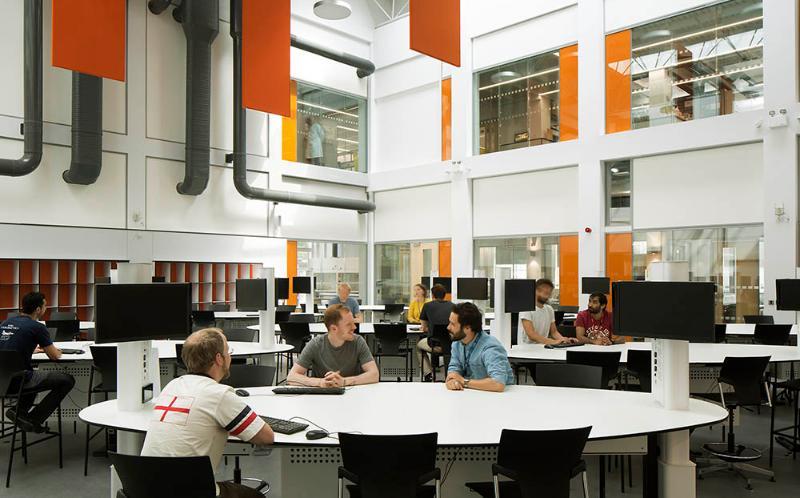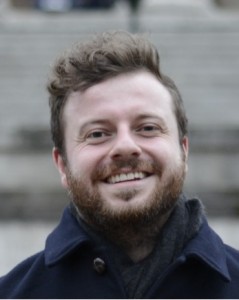PGCAP project: Co-creating multiple choice questions and peer assessment

This project explores the use of multiple choice question co-creation and peer assessment in order to increase engagement and relationships.
The focus of this study is to implement multiple choice question (MCQ) writing and peer assessment of these MCQs for a new module starting in 2022. This module was co-designed by myself in the summer of 2019 as a part of a School-wide redesign of different courses and modules in the School of Engineering and Materials Science, Queen Mary University of London.
Rationale for the project
The rationale for these changes include modernising the programmes, reducing the number of modules delivered and revising maximum class sizes to less than 200, to improve the quality of student experience, reduce academic work load and improve graduate outcomes. There are six degree streams taught in SEMS; Mechanical Engineering, Aerospace Engineering, Chemical Engineering, Biomedical Engineering, Sustainable Energy Engineering and Materials Science and Engineering.
Whereas before many streams in SEMS were taught separately in the first year, in the new format these streams are being taught concurrently to provide the base learning required for the subsequent, more specialised years that each stream will undertake. The specific module I am delivering is called “Chemical Materials” and caters for all first year students in four of the six streams: BEng Sustainable Energy Engineering, BEng Chemical Engineering, BEng Biomedical Engineering and BEng Materials Science and Engineering. This results in a class size of 180 students and there will be an end of module MCQ exam.
Flipped learning and MCQs
A flipped learning approach is being taken, where 2 hours of pre-recorded lectures are to be watched online. For the synchronous sessions the cohort will be split in half and both halves will have one problem-based learning session run by TAs and one session run by the module organisers. For the session the module organisers run, there will be a Q&A session and some case studies shown. The action I will be implementing will also take place during these sessions.
The action will be to introduce an element of multiple-choice question (MCQ) writing and peer assessment of these MCQs to the module. There are numerous rationales behind implementing this action: Rationale 1 - To increase relationships, both inter-student and teacher-student relations; Rationale 2 - To prepare students for online MCQ summative assessments; Rationale 3 - To save time through the MCQ co-creation and automated marking of MCQ assessments and Rationale 4 - To increase my own professional development during the implementation and evaluation of the project
Supporting student engagement and wellbeing
COVID-19 forced much teaching online, and as the pandemic continues, we have to prepare for some students to not be able to join synchronous sessions in-person, resulting in mixed-mode education (i.e. both online and in person synchronously). In the extreme, when there is an enforced lockdown, we must be prepared for synchronous sessions to be solely online. The School of Engineering and Materials science (SEMS) is also looking to grow its international student contingent in order to increase the level of fee income. In this case there must be online provision in case students cannot physically enter the UK for taught sessions.
My informed observation of teaching and advising students online throughout the pandemic is that there was a high barrier to students connecting with each other on a personal or even a “study friend” level. This led to a large increase in loneliness which was well documented in the media for the general population, but in my opinion may have affected students disproportionally.
A large reason for this in my mind, is that many of them had moved out of their family home for the first time (often moving countries or continents) and were in an unfamiliar environment, away from their support network. Many of the students are also “being an adult” for the first time, and so have not yet full learned how to look after their own mental health. One example I can cite is an advisee that I had that took me a while to get through to online in order to get them to talk on a personal level to me about their academic performance. Once I had built some rapport, I organised to meet them in person outside their campus halls. When asked they told me the last time they had been outside was over a week ago. Due to the online nature of the lectures and classes at the time they had not built a good rapport with any of their fellow students and were unmotivated and in a poor place mentally.
Transition to learning and assessment in HE
The results of loneliness are not good for either mental health of the students or for their own academic achievement. Also, for the teacher, having unmotivated, disengaged students does not make for a rewarding teaching experience. Rationale 1 was created to mitigate loneliness in light of these observations. The transition from secondary school to university is often difficult for students as I have observed from my advisees. Many are not used to the pace of due assignments and this can be a difficult challenge. Additionally, due to COVID, the UK based students in this first year will not have done any summative assessments since their GCSEs in 2019. Students who studied at secondary schools outside the UK may also be in a similar position.
Due to the lack of practice in summative assessments and the fact that summative assessment style varies globally, I think it is important to take the time to prepare the students for the style of summative assessment. In the case of this module, the final, summative assessment is an MCQ assessment. I will co-create the final summative assessments with the students by teaching them how to write MCQs (scaffolding) and by having them write MCQs and peer-review them. Along with formative MCQ tests this should adequately train and prepare the students for the final summative assessment (rationale 2).
Working with large student cohorts
Thus far in my teaching career I have only taught modules on the 50-student scale and have not yet implemented automated marking. I have found the marking to take up a significant amount of time in these courses. When scaled up to a module of this size (180) I think automated marking can really come into its own and save the markers a lot of time, and allows for a much larger amount of formative learning and assessment for each student. Not only does the marking of assessment questions take a lot of time, but also the writing of assessment questions take a lot of time. By implementing peer-reviewed co-creation of MCQs I aim to save time on both the writing and marking of these assessments. I anticipate that in the first year this will be difficult to set up, but successive years will reap the benefit and of these efforts in a cumulative manner as the bank of questions is built up (rationale 3). My final rationale (rationale 4 - To increase my own professional development during the implementation and evaluation of the project) is one of my main personal reasons to undertake this research.
I hope that the planning and implementation of this study make me a better, more reflective practitioner who can evaluate and modify their teaching methods more easily.
Contributor profile:
Dr Patrick Cullen is Lecturer in Renewable Energy in the School of Engineering and Materials Science. At undergraduate Paddy studied chemistry at Balliol College, University of Oxford, (MChem, 2009), where he studied metal-ammonia solutions in the lab of Prof. Peter Edwards FRS.
He then spent a year teaching and demonstrating experiments in schools around south east England, before studying for his doctorate in the department of Physics & Astronomy, University College London (PhD 2015), in the lab of Prof. Neal Skipper and Dr. Chris Howard.
Subsequently he was awarded an EPSRC Doctoral Prize Fellowship to work in the Department of Chemical Engineering, University College London with Prof. Dan Brett. He is now an RCUK EPSRC Innovation Fellow working at Queen Mary, University of London since Janruary 2020.
About PGCAP projects
PGCAP is the Postgraduate Certificate Academic Practice, delivered by the Queen Mary Academy to staff teaching Queen Mary students.
The final module of PGCAP is Action (practitioner) Research. As part of this module, participants develop an Action Research Project Proposal. This is an excerpt from one such project proposal.
